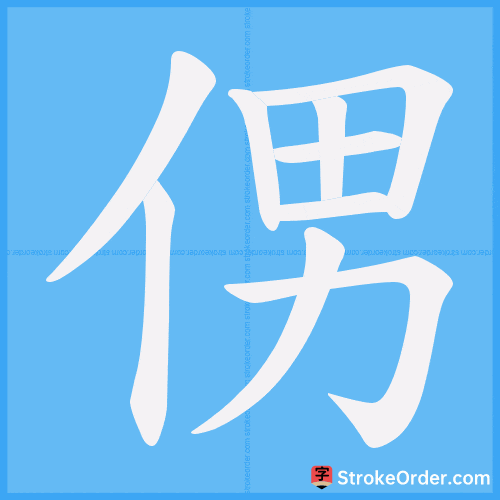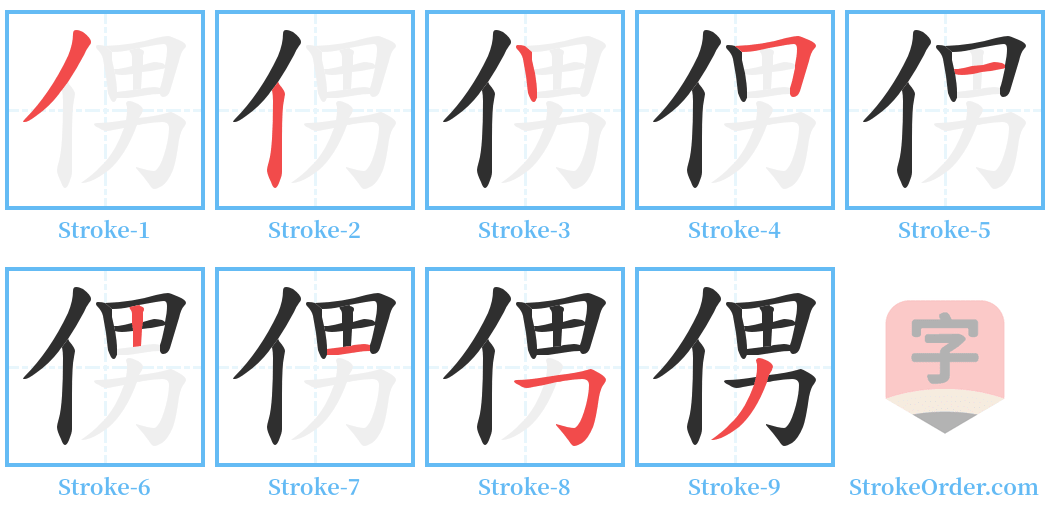侽 Stroke Order
Animated Stroke Order of 侽

Stroke Order Diagrams for 侽

Information of 侽
Pinyin
nán
Radical
亻
Strokes
9 strokes
Usage
★★
Definition
侽
1. Anciently the same as “男” (nán - man).
2. - (Pictophonetic: consists of 田 (tián - field) and 力 (lì - strength); indicates exerting strength in the fields, often associated with plowing. The original meaning: man, in contrast to “女” (nǚ - woman). Men's role in agricultural labor.)
* Men, as in husbands. Men are associated with strength in the fields. — From "Shuōwén Jiězì" (说文解字).
* Extended meaning: son. "Three men guard the place of Ye." — From "Shíháo Lì" (石壕吏) by Du Fu (杜甫).
3. - (Pictophonetic: consists of 田 (tián - field) and 力 (lì - strength); indicates exerting strength in the fields, often associated with plowing. The original meaning: man, in contrast to “女” (nǚ - woman). Men's role in agricultural labor.)
* Men, as in husbands. Men are associated with strength in the fields. — From "Shuōwén Jiězì" (说文解字).
* Extended meaning: son. "Three men guard the place of Ye." — From "Shíháo Lì" (石壕吏) by Du Fu (杜甫).